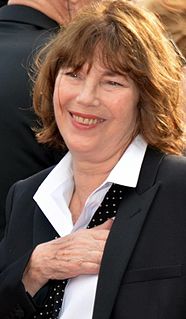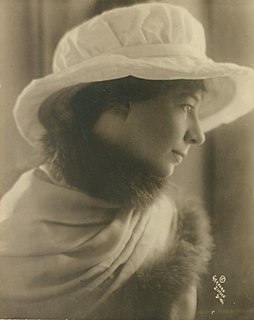A Quote by Dylan Thomas
Reading one's own poems aloud is letting the cat out of the bag. You may have always suspected bits of a poem to be overweighted, overviolent, or daft, and then, suddenly, with the poet's tongue around them, your suspicion is made certain.
Related Quotes
I just know from experience that reading a funny poem aloud, especially at the beginning of a public reading, can have a certain effect. Somehow narrowing the spectrum of possible emotional reactions. So while I like it when people laugh at my poems, and I definitely enjoy being funny in them, I don't really think that's the most important thing that's going on, at least not to me.
I just think that the world of workshops - I've written a poem that is a parody of workshop talk, I've written a poem that is a kind of parody of a garrulous poet at a poetry reading who spends an inordinate amount of time explaining the poem before reading it, I've written a number of satirical poems about other poets.
I wrote a number of poems about Kah Tai lagoon, when Safeway was building that huge, ugly store down there where I used to love to watch the birds nest. That political poem, or environmental poem, was unsuccessful because Safeway built there anyway. And yet the poem has something to say today, as it did then. And I speak here only of my own poems. The agenda for every poet has to be different because most of us write from direct human experience in the world.
There's no fun in a bag if it's not kicked around, so that it looks as if the cat's been sitting on it-and it usually has. The cat may even be in it! I always put on stickers and beads and worry beads. You can get them from Greece, Israel, Palestine-from anywhere in the world. I always hang things on my bags because I don't like them looking like everyone else's.
With a comedian, it's the opposite. You put that album out, and they've heard it. If they're coming out to see you, you'd better be doing new stuff. There's always a tiny part of the audience that want to hear certain bits of yours, or they've brought friends to see you, and they've told them about some of your bits. Then maybe you should do them.
If we are always reading aloud something that is more difficult than children can read themselves then when they come to that book later, or books like that, they will be able to read them - which is why even a fifth grade teacher, even a tenth grade teacher, should still be reading to children aloud. There is always something that is too intractable for kids to read on their own.
Lucky accidents seldom happen to writers who don't work. You will find that you may rewrite and rewrite a poem and it never seems quite right. Then a much better poem may come rather fast and you wonder why you bothered with all that work on the earlier poem. Actually, the hard work you do on one poem is put in on all poems. The hard work on the first poem is responsible for the sudden ease of the second. If you just sit around waiting for the easy ones, nothing will come. Get to work.
The judges who awarded the 1980 Commonwealth Poetry Prize to my first collection of poems, Crossing the Peninsula and Other Poems, cited with approval and with no apparent conscious irony my early poem, "No Alarms." The poem was composed probably sometime in 1974 or 1975, and it complained about the impossibility of writing poetry - of being a poet - under the conditions in which I was living then.
My theory is that poems are written because of a state of emotional irritation. It may be present for some time before the poet is conscious of what is tormenting him. The emotional irritation springs, probably, from subconscious combinations of partly forgotten thoughts and feelings. Coming together, like electrical currents in a thunder storm, they produce a poem. ... the poem is written to free the poet from an emotional burden.
A successful poem says what a poet wants to say, and more, with particular finality. The remarks he makes about his poems are incidental when the poem is good, or embarrassing or absurd when it is bad and he is not permitted to say how the good poem is good, and may never know how the bad poem is bad. It is better to write about other people's poetry.






































